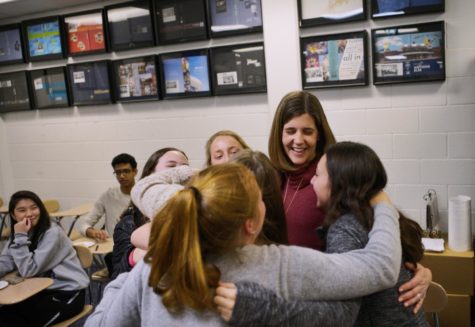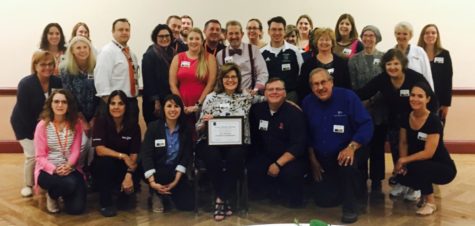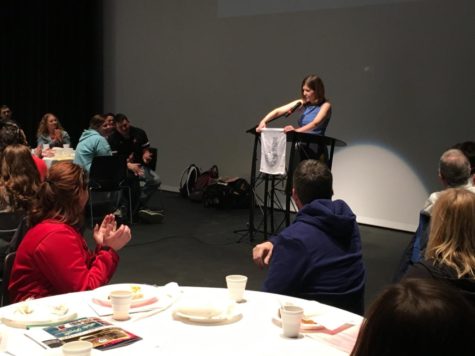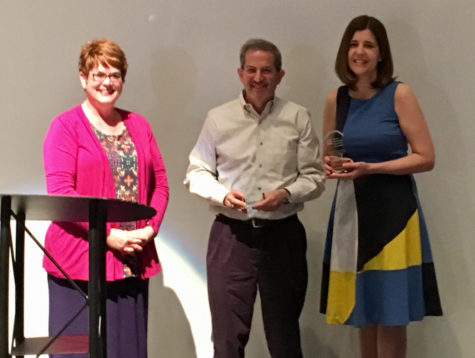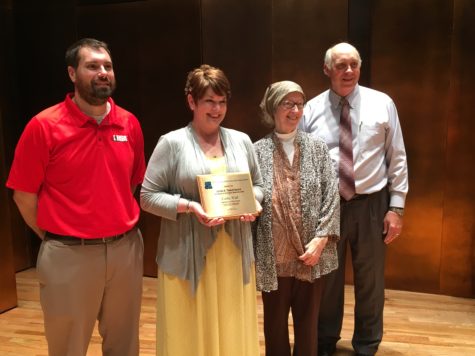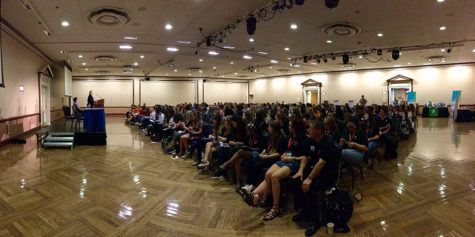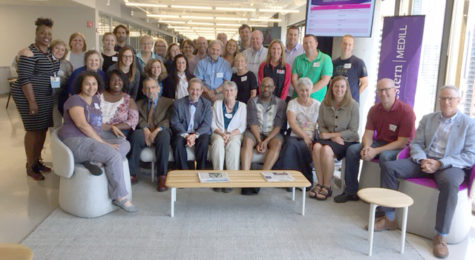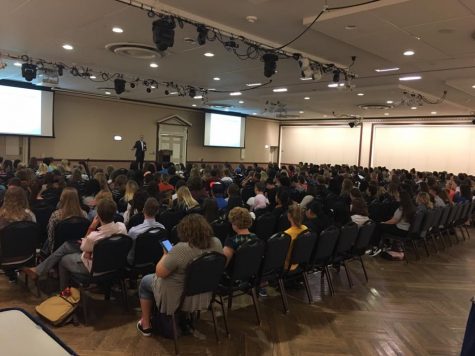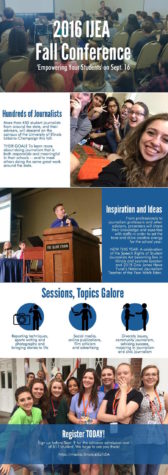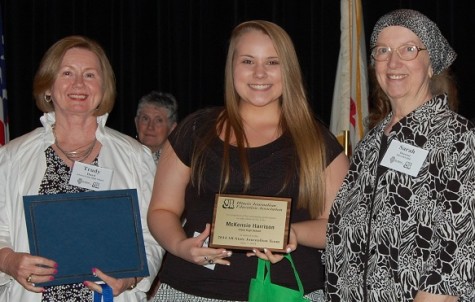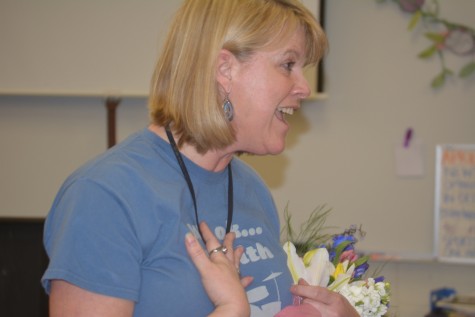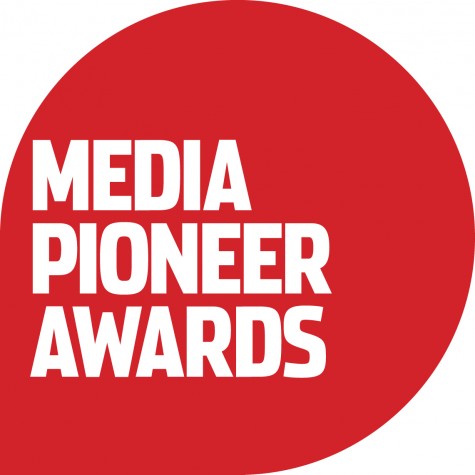Become a Certified or Master Journalism Educator at the 2016 IJEA Fall Conference
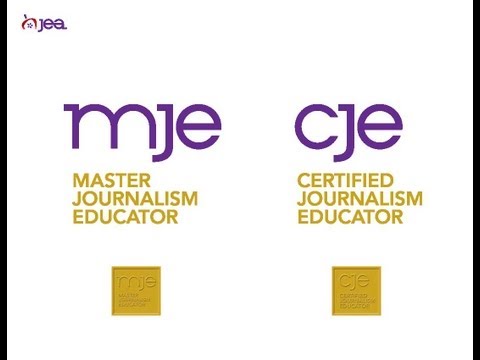
For the second year, the Journalism Education Association will be offering the exam to become a Certified Journalism Educator or a Master Journalism Educator at the 2016 Fall Conference (Friday, Sept. 16) held at the University of Illinois at Urbana-Champaign.
The designation of Certified Journalism Educator (CJE) is “an effective way for you to demonstrate your knowledge of the basics in journalism and media advising,” according to the Journalism Education Association.
The next level of certification is Master Journalism Educator (MJE), which “recognizes the teacher of unusual ability and expertise … [with the] ability to help other journalism educators, to advise students working on a specific project, to design or adapt journalism programs to meet specific needs and to serve as a spokesperson representing journalism teachers/advisers on the local, state and national levels.”
For Dr. Sally Renaud, head of the Eastern Illinois University Journalism Department and IJEA executive director, the certification means a lot personally to those in scholastic journalism throughout the state.
“I know that certification is meaningful to our advisers,” Renaud said. “It demonstrates to themselves, to their students, to their colleagues and to their schools that they have a degree of expertise in their field. It is recognition from the national journalism education organization that their skills and knowledge are accepted and appreciated. I applaud those who work toward their CJE and MJE, because like any academic challenge, these certifications are indicators of thoughtful, focused and deliberate study.”
Cathy Wall, a certification commissioner for JEA and journalism adviser at Harrisburg High School, 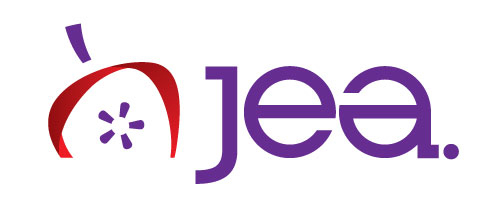 noted that the challenge, however, is not as overwhelming as many advisers may think.
noted that the challenge, however, is not as overwhelming as many advisers may think.
“Becoming certified is not as difficult as some people might believe,” Wall said. “The test asks questions about things that come up in the course of putting together a student publication. And JEA has ample resources for brushing up on the things that come up less frequently. And when you’ve finished, you have that affirmation from an outside source that, yes, you do know what you are talking about when it comes to student media, which is especially encouraging for teachers like me who come from an English background, as opposed to a journalism one.”
To learn more about one Illinois yearbook adviser’s experience with the CJE exam and process, read Trudy Hurd’s story.
According to the JEA, there are three options for gaining your CJE:
- Option A is for those members with journalism degrees that include news writing, law and ethics, and advising publications credentials.
- Option B is for members without all the credentials for Option A but who have taught/advised journalism for three years or more and want to take the CJE exam.
- Option C is for JEA members associated with commercial/business or professional enterprises. They will take the CJE exam.
If you wish to take the test, you should register by Aug. 1. Registration can be done here. A study guide for the CJE exam is available here, and to learn more about certification overall from JEA, visit their website.
For the MJE, the process is a bit more involved, but it pulls knowledge and materials directly from the day-to-day experiences of a publications adviser. Applicants must complete an application and:
- Have earned CJE status.
- Verify five years of journalism teaching or advising experience.
- Submit a letter of endorsement from a supervisor or principal who has directly observed the journalism educator while teaching or advising.
- Show evidence of participation in scholastic journalism professional growth activities at local, state, regional or national levels.
- Pass the Master Journalism Educator examination (a 2 1/2-hour essay test of the educator’s knowledge and ability to advise others about journalism).
- Submit a pre-approved project, paper or teaching unit.
Wall will be proctoring the exams at U of I, and said that prospective certification candidates should check out the “Get Certified” presentations at the JEA website, as well as review the JEA curriculum, which aligns with the exams in order to prepare.
“We hope that many of you take advantage of this opportunity,” Wall said, and she noted that if you plan to test, you must register on the JEA website for either the CJE test or the MJE test and choose “other” for the testing location.
We hope that you take this chance to show others the wealth of knowledge and abilities you have as a yearbook, newspaper, magazine, broadcast, or online journalism adviser. We look forward to seeing you at the 2016 Fall Conference on Friday, Sept. 16!


